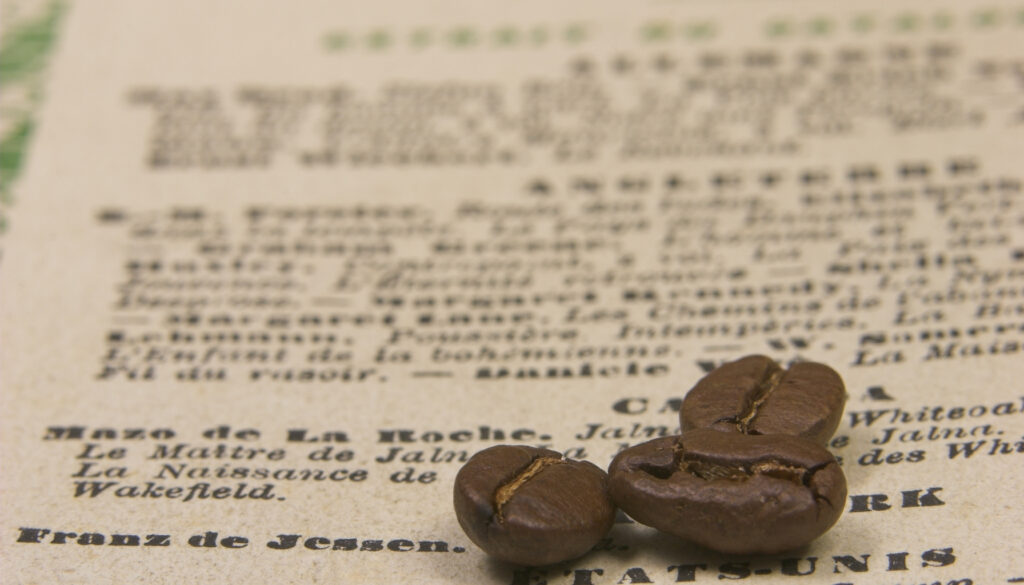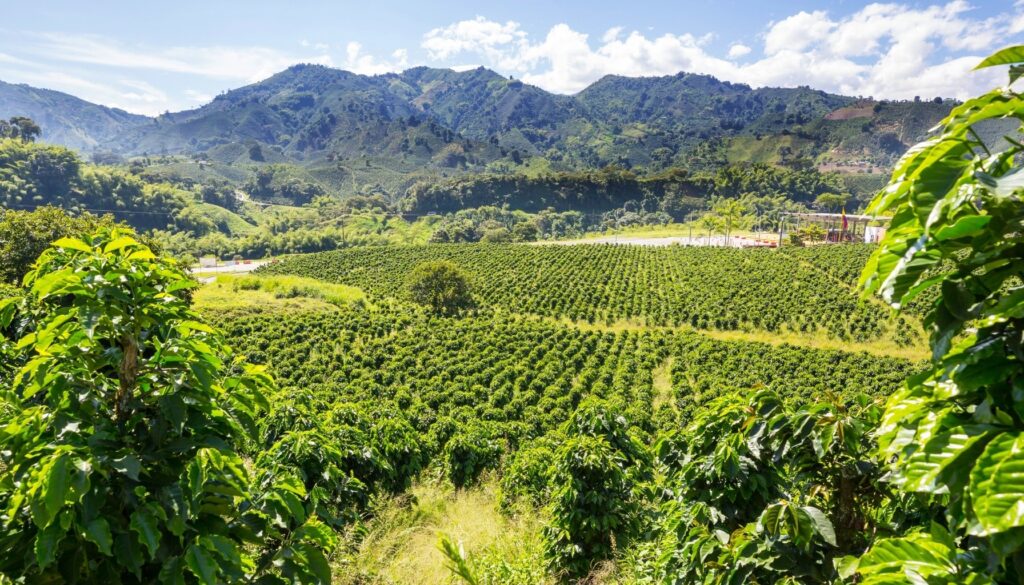Coffee, a beloved beverage enjoyed by millions, boasts a fascinating history that intricately weaves through cultures and societies around the globe. The evolution of coffee—from its discovery in ancient Ethiopia to its vital role in modern café culture—provides insight into the cultural, social, and economic forces that have transformed our world. This article invites you on an engaging journey through coffee history, exploring iconic brews that not only defined eras but shaped the rituals and economies of civilizations. Discover the flavors, stories, and historical significance of coffee throughout the ages.
1. The Birth of Coffee: A Legend from Ethiopia
The tale of coffee’s origins can be traced back to the 9th century in the mountainous regions of Ethiopia. The story goes that a goatherd named Kaldi discovered the energizing properties of coffee beans after observing his goats frolicking energetically after consuming the berries. Intrigued by this phenomenon, Kaldi sampled the berries himself and experienced a surge of vitality. Eager to share his discovery, he took the berries to local monasteries, where monks began using them to create a beverage that supported their long hours of prayer and meditation.
This early concoction established coffee as a drink of spiritual significance. The introduction of coffee to communal life laid the groundwork for its acceptance, with religious practices intertwining with social interactions. The legend of Kaldi not only marks the birth of coffee but also highlights its significance in fostering community and connection.
2. The Rise of Coffee Houses: The Ottoman Empire
By the 15th century, coffee had made its way to the Ottoman Empire, where it flourished as a cultural phenomenon. The emergence of the first coffeehouses, known as qahveh khaneh, in cities like Constantinople signified a new era for coffee culture. These establishments became vibrant centers for social engagement, intellectual discourse, and artistic expression. Patrons would gather to savor the rich, dark brew while engaging in passionate debates on politics, philosophy, and the arts.
As coffeehouses grew in popularity, they attracted a diverse clientele that included poets, musicians, and thinkers. The significance of these spaces extended beyond mere refreshments; they shaped societal norms and fostered a sense of community among different social classes. The environment of the coffeehouse set the standard for future coffee cultures worldwide, establishing a model for social interaction over a shared cup.
3. Coffee in Europe: A Drink for the Elite
In the 17th century, coffee reached Europe, quickly becoming a favorite beverage among the aristocracy. Coffeehouses sprang up in major cities such as London, Paris, and Vienna, where they became synonymous with sophistication and luxury. These exclusive venues attracted the upper echelons of society, who relished the opportunity to sip finely brewed coffee while discussing the latest ideas, innovations, and societal issues.
In England, coffeehouses gained the nickname “penny universities,” offering enlightening discussions for the cost of a cup of coffee. Writers, scientists, and politicians frequented these establishments, fueling the Age of Enlightenment and transforming coffee into a symbol of intellectual exchange. However, this growing demand for coffee also led to its commodification and the establishment of a global trade network, impacting societies far beyond Europe.
4. The Birth of Espresso: Italy’s Contribution
The 20th century witnessed Italy’s major contribution to coffee culture with the invention of the espresso machine. This innovative brewing method revolutionized how people prepared coffee, allowing for quick brewing under pressure. The result was a potent shot of coffee, dense in flavor and crowned with a crema. Espresso became a staple of Italian culture, enjoyed in bustling cafés throughout the country.
Espresso’s significance extended beyond mere consumption; it became a central element of social life in Italy. Patrons would stand at the bar, exchanging pleasantries over their quick shot of liquid energy. The influence of espresso spread globally, inspiring countless variations and evolving coffee-drinking experiences. Today, espresso remains a cornerstone of coffee culture, celebrated for its rich flavor and historical importance.
5. The Evolution of Cold Brew: A Refreshing Revolution
As coffee culture evolved, so did brewing methods. In the 20th century, cold brew emerged as a refreshing alternative to traditional hot coffee. This method involves steeping coffee grounds in cold water for extended periods, typically 12 to 24 hours. The resulting brew is smoother and less acidic than its hot counterparts, catering to health-conscious consumers.
Cold brew gained popularity in the United States, especially during sweltering summer months. Specialty coffee shops began crafting artisanal cold brews, experimenting with flavor profiles and serving techniques. This innovation not only appealed to those seeking a chilled beverage but also introduced a new layer of creativity to coffee preparation, expanding the horizons of what coffee could be.
6. The Third Wave Coffee Movement: Artisanal Excellence
The late 20th century ushered in the Third Wave Coffee Movement, which emphasized coffee as an artisanal product, much like fine wine. Coffee enthusiasts began to appreciate the nuanced flavors, origins, and brewing techniques that contribute to the overall experience. This movement emphasized transparency, sustainability, and direct trade with coffee farmers, elevating coffee’s status from mere commodity to a complex craft.
Roasters began sourcing high-quality beans from specific regions, each known for unique flavor notes influenced by climate, soil, and processing methods. Baristas mastered brewing techniques, taking pride in extracting the perfect cup. The Third Wave movement transformed coffee shops into learning and exploration hubs, inviting patrons to indulge in the artistry behind each brew.
7. The Influence of Coffee on Colonial Societies
The colonial era significantly impacted global coffee culture. European powers established plantations in tropical regions, including the Caribbean and South America. These plantations heavily depended on enslaved labor, creating a complex narrative intertwined with the coffee trade.
Despite its dark history, coffee emerged as a crucial economic commodity for colonial societies. It fueled trade routes and shaped the economies of regions like Brazil and Colombia, which remain prominent coffee producers today. The legacy of colonialism continues to affect the industry, prompting contemporary consumers to consider the ethical implications of their coffee choices.
8. The Role of Coffee in Social Movements
Throughout history, coffee has served as a catalyst for various social movements. In the 1960s, coffeehouses became popular gathering spots for activists and counterculture movements. These establishments provided space for like-minded individuals to discuss ideas and strategize for social justice and civil rights.
Sharing coffee often symbolized solidarity and unity among those seeking progressive change. From anti-war protests to civil rights discussions, coffee has served as both comfort and rallying point. This tradition continues today, with many coffee shops embracing their role as community hubs for activism and social awareness.
9. Coffee and the Industrial Revolution
The Industrial Revolution marked a turning point in coffee history, as mass production and urbanization fundamentally altered how people consumed coffee. Instant coffee emerged as a convenient option for those seeking quick caffeine boosts without extensive brewing methods. This innovation catered to the fast-paced lifestyle of the era.
Additionally, coffee’s integration into the workplace became prevalent, as factory workers sought sustenance during long hours. This relationship between coffee and productivity established coffee as an essential component of modern work culture. Today, coffee remains synonymous with energy and focus, continuing to fuel countless jobs across various industries.
10. The Global Coffee Trade: Economy and Culture
The coffee trade stands as one of the world’s largest industries, impacting economies and cultures on a global scale. Millions of people rely on coffee cultivation for their livelihoods, making it a significant economic driver in many developing countries. However, this trade often faces challenges regarding fair wages and sustainability, underscoring the importance of ethical sourcing practices.
Beyond its economic implications, coffee serves as a cultural connector, bridging people across borders. Each region produces beans with unique flavors, often reflective of local traditions. Coffee consumers increasingly seek ethically sourced beans, fostering a greater appreciation for the stories behind their favorite brews. This sense of connection underscores coffee’s enduring legacy as a global connector.
11. Coffee Rituals: A Cultural Exploration
Around the world, diverse cultures have developed unique coffee rituals expressing their values and traditions. Take the Turkish coffee ceremony, for instance. This intricate process involves brewing finely ground coffee in a specialized pot called a cezve. The resulting brew is rich and thick and typically served with water and sweets, creating an experience that transcends mere consumption.
In Italy, the tradition of enjoying espresso captures the essence of Italian café culture. Coffee drinking becomes a communal activity, often accompanied by lively conversations and social interactions. These rituals highlight coffee’s importance in cultural identity, demonstrating how this cherished beverage can unite individuals through shared experiences.
12. Coffee in Art and Literature: A Muse for Creatives
Coffee has inspired countless artists, writers, and musicians throughout history. Its rich aroma and stimulating effects have served as a muse for creativity. Many renowned authors, such as Honoré de Balzac and Victor Hugo, found solace in coffee shops while penning their masterpieces.
In the world of visual arts, coffee has been the subject of paintings, photographs, and installations. Artists explore themes of warmth, connection, and reflection through coffee culture. This enduring relationship between coffee and art continues to flourish, as contemporary creators utilize coffee as a medium, further solidifying its significance in the creative landscape.
13. Specialty Coffee and Unique Brewing Techniques
The rise of specialty coffee has led to the exploration of various brewing techniques, each offering distinct flavor profiles and sensory experiences. Methods like pour-over, French press, and Aeropress have gained popularity among coffee lovers. These techniques allow for precise control over brewing variables, enhancing the extraction of flavors from the beans.
Moreover, coffee aficionados appreciate the art of latte art, where baristas skillfully craft intricate patterns atop espresso drinks. This visual element adds an aesthetic dimension to coffee consumption, transforming each cup into a creative canvas. These unique brewing techniques not only elevate the coffee experience but also foster a deeper appreciation for the craftsmanship involved in every cup.
14. Sustainable Coffee Practices: A Responsible Future
As coffee consumption rises, the industry faces mounting pressure to adopt sustainable practices. Environmental concerns, such as deforestation and water usage, compel coffee producers to implement eco-friendly methods. Shade-grown coffee, for example, promotes biodiversity while maintaining high-quality crops.
Consumers have become increasingly conscious of their coffee purchases, favoring brands prioritizing fair trade and organic certification. This shift toward sustainability reflects a broader societal trend of ethical consumerism. Supporting responsible practices allows coffee lovers to contribute to a healthier planet while empowering farmers to cultivate a more equitable coffee economy.
15. The Emergence of Coffee Culture in Asia
While coffee has long been associated with Western cultures, Asia’s coffee scene has flourished recently. Countries like Japan, South Korea, and Vietnam have developed vibrant coffee cultures, each with unique brewing methods and traditions. Japan’s siphon coffee, for instance, showcases a theatrical brewing technique blending science and artistry.
Vietnam’s signature coffee preparation, cà phê sữa đá, exemplifies a flavorful fusion, utilizing sweetened condensed milk and rich coffee. These innovations redefine coffee culture in Asia, attracting global attention and inspiring new coffee trends. The rise of specialty coffee shops in these regions emphasizes the growing appreciation for quality coffee and diverse brewing practices.
16. The Connection Between Coffee and Wellness
Recent research has explored the potential health benefits of coffee. Studies suggest that moderate coffee consumption may be linked to improvements in cognitive function, a reduced risk of certain diseases, and enhanced physical performance. This newfound focus on wellness has propelled coffee into the spotlight, particularly among health-conscious consumers.
Brands have capitalized on this trend, creating products like mushroom coffee and cold brews enriched with adaptogens. These innovative offerings cater to individuals seeking beverages that promote enjoyment and well-being. The intersection of coffee and health represents a fascinating evolution, showcasing the beloved drink’s potential role in a balanced lifestyle.
17. The Future of Coffee: Innovations on the Horizon
As technology advances, the coffee industry continues evolving. Innovations in brewing equipment, sustainable farming practices, and digital platforms have transformed how we experience coffee. Smart coffee machines now allow users to customize their brews with precision, while apps connect consumers directly with coffee farmers.
Furthermore, the exploration of alternative coffee sources, such as substitutes made from grains or plants, is gaining traction. These innovations challenge traditional notions of coffee, prompting consumers to consider new flavors and experiences. The future of coffee looks bright, driven by creativity, sustainability, and a commitment to quality that will undoubtedly shape its next chapter.
18. Global Coffee Trends: A Cultural Mosaic
Today, coffee trends reflect a rich mosaic of global influences. From the resurgence of traditional brewing methods to the embrace of avant-garde techniques, coffee culture thrives in diverse environments. Each region contributes its signature flavors and practices, creating a vibrant tapestry of coffee experiences.
This cultural exchange fosters collaboration and innovation as coffee enthusiasts share their discoveries across borders. The result is a harmonious blend of traditions, inspiring new flavors and methods while honoring the past. As consumers become increasingly adventurous, the coffee landscape expands, inviting all to explore the myriad possibilities awaiting them in their cup.
19. Coffee History Competitions: Showcasing Barista Skills
Competitions play a vital role in elevating coffee culture and showcasing the talents of baristas. Events like the World Barista Championship highlight the artistry and precision involved in coffee preparation. Competitors demonstrate their technical skills, creativity, and knowledge of coffee through intricate brewing methods and captivating latte art presentations.
These competitions foster camaraderie among coffee professionals, promoting a culture of excellence. They inspire baristas to continually refine their craft and push the boundaries of what is possible with coffee. The celebration of skill and creativity at these events contributes to the ongoing evolution of coffee culture, inspiring professionals and enthusiasts alike.
20. Coffee’s Enduring Legacy: A Drink for All Time
Reflecting on the journey of coffee through the ages, it becomes evident that this beloved beverage has the power to unite people, cultures, and ideas. From its origins in Ethiopia to its contemporary status as a global phenomenon, coffee continues to shape societies and inspire individuals. The stories, rituals, and innovations surrounding coffee contribute to its enduring legacy, ensuring it remains a cherished part of daily life.
In today’s fast-paced world, coffee offers a moment of pause, an opportunity to connect with others, and a celebration of craftsmanship. As we savor our favorite brews, we honor the rich history and cultural significance of coffee that transcends generations. Whether you prefer a classic espresso or an avant-garde cold brew, the world of coffee invites you to indulge in its complexities, flavors, and stories that have shaped history. So, raise your cup to the past, present, and future of coffee—an eternal drink for all.
By thoroughly examining the role of coffee throughout history, we gain a deeper appreciation for this beloved beverage. It is not merely a drink but a cultural artifact that continues to shape our global society. Its influence on social norms, economic systems, and cultural practices showcases its significance across centuries. As we explore coffee’s multifaceted history, we recognize it as a testament to human connection, creativity, and tradition—a remarkable journey that will undoubtedly continue to unfold.


